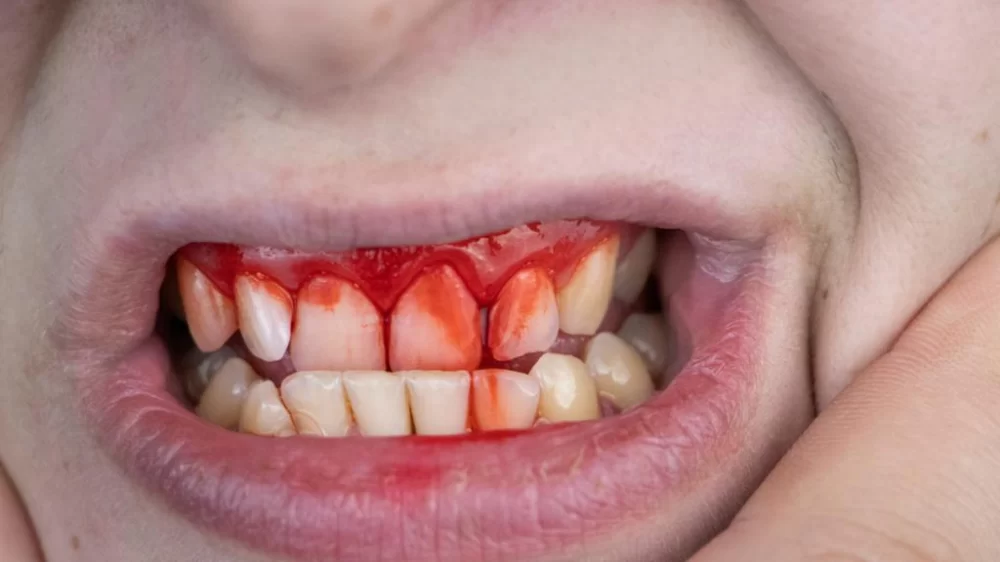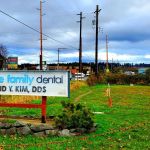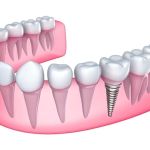
Effective Ways to Stop Dental Bleeding After an Injury
Dental injuries, whether from sports accidents, falls, or even minor mishaps at home, can sometimes result in painful bleeding. Having experienced a dental injury myself, I know how alarming it can be to see blood in your mouth. However, it's important to stay calm and take the right steps to stop the bleeding and ensure proper healing. In this article, I'll share my own experience with dental bleeding, walk you through the most effective ways to stop the bleeding, and give you practical tips on what to do in case of a dental injury.
Understanding the Causes of Dental Bleeding
Before jumping into how to stop dental bleeding, it's essential to understand what causes it. Dental bleeding typically occurs when the gums, lips, or other soft tissues in your mouth are injured. Common causes include:
1. Sports Injuries
Whether you’re playing basketball, soccer, or engaging in any other physical activity, dental injuries can occur unexpectedly. A blow to the mouth can damage the gums, teeth, or the tissue surrounding the teeth, leading to bleeding.
2. Falls or Accidents
A fall can cause a direct injury to the teeth or gums. This can happen at any age, and while it’s common in children, adults can also experience dental injuries from trips, falls, or even car accidents.
3. Sharp Objects
Sometimes, sharp objects like forks, broken glass, or even certain foods can cut the inside of the mouth or gums, causing bleeding. In my experience, I once accidentally bit into something too hard, which resulted in a small tear in my gum that started bleeding.
Steps to Stop Dental Bleeding After an Injury
When dental bleeding occurs, it’s crucial to act quickly to prevent excessive blood loss and promote healing. Here are the steps I follow, and I recommend, based on both personal experience and expert advice:
1. Stay Calm and Assess the Injury
The first step is to remain calm. It’s easy to panic when you see blood, but staying calm helps you think clearly and take the right actions. Assess the situation: Is the bleeding coming from a gum or lip injury? Is a tooth loose or broken? These details will guide your next steps.
2. Apply Pressure
Applying gentle pressure to the injured area can help control the bleeding. I once had a situation where I bit my lip and the bleeding wouldn't stop. I took a clean cloth and gently pressed it against the wound. Hold the pressure for at least 10 minutes without checking to see if the bleeding has stopped, as this can interrupt the clotting process.
3. Rinse with Cold Water
Rinsing your mouth with cold water can help reduce swelling and constrict the blood vessels in the area, which might stop the bleeding more quickly. Avoid using hot water, as it can increase blood flow and worsen the bleeding.
4. Use a Cold Compress
If there’s swelling in the area, applying a cold compress to the outside of your mouth or cheek can reduce the swelling and numb the pain. Wrap a few ice cubes in a cloth or use a commercial ice pack and place it against your face for about 15 minutes at a time.
5. Elevate Your Head
Keeping your head elevated can help minimize the flow of blood to the injured area. I learned this from my own experience during a dental injury. Whether you're sitting or lying down, make sure your head stays higher than your chest to prevent increased blood flow to the mouth.
When to Seek Professional Help
While many dental injuries can be treated at home, there are times when you need to seek professional dental care. These situations include:
1. Excessive Bleeding
If the bleeding doesn’t stop after 20 minutes of applying pressure, it’s time to call your dentist or visit the emergency room. Prolonged bleeding might indicate a more serious injury to the gums or underlying tissues.
2. Broken or Lost Teeth
If you’ve broken or lost a tooth due to an injury, it’s essential to see a dentist immediately. A broken tooth may cause further damage to the surrounding tissue, and a lost tooth can often be saved if treated within an hour.
3. Deep Cuts or Tears
Sometimes, an injury can cause deep cuts in the gums, lips, or other soft tissues in your mouth. If you notice a deep tear or laceration, it’s best to get professional care to prevent infection and ensure proper healing.
Personal Story: Dealing with My Own Dental Injury
One evening, I accidentally knocked my front tooth on the corner of a kitchen counter while rushing to answer the phone. The initial pain was sharp, and before I even had a chance to think, my mouth started bleeding profusely. I rushed to the bathroom and applied pressure using a clean towel. Luckily, the bleeding stopped after about 15 minutes. However, my tooth was loose, and I was terrified it would fall out. That experience taught me the importance of staying calm, applying pressure, and knowing when to seek professional help. The dentist was able to assess the injury and stabilize the tooth, preventing further damage.
Preventing Future Dental Injuries
While accidents happen, there are steps you can take to prevent dental injuries in the future:
1. Wear Mouthguards
If you play contact sports, wearing a mouthguard is essential. I’ve noticed that since I started wearing one during sports activities, I haven’t had any injuries to my teeth, and I feel much safer during intense games.
2. Avoid Hard Foods
Avoid biting down on hard objects or foods like ice, popcorn kernels, or candy. This can prevent unnecessary strain on your teeth and gums, which can sometimes result in painful injuries.
3. Maintain Oral Health
Regular dental checkups and practicing good oral hygiene are crucial. Strong teeth and gums are less likely to suffer from injuries. I always make sure to brush and floss daily and visit the dentist regularly to ensure my oral health is at its best.
If you ever experience dental bleeding due to an injury, remember that staying calm and following these steps can help you manage the situation effectively. If you need professional assistance or advice on how to care for your teeth, feel free to explore our website for trusted dental services and recommendations. Taking the right steps after a dental injury can prevent long-term damage and ensure your smile stays bright and healthy.







 FME Family Dental: David Y. Kim, DDS4.0 (19 review)
FME Family Dental: David Y. Kim, DDS4.0 (19 review) Safer Family & Cosmetic Dentistry5.0 (506 review)
Safer Family & Cosmetic Dentistry5.0 (506 review) Fair Oaks Family Dental2.0 (26 review)
Fair Oaks Family Dental2.0 (26 review) Valley Pediatric Dentists4.0 (137 review)
Valley Pediatric Dentists4.0 (137 review) Asha Dental Lenexa5.0 (5 review)
Asha Dental Lenexa5.0 (5 review) Bright Now! Dental & Orthodontics3.0 (453 review)
Bright Now! Dental & Orthodontics3.0 (453 review) The Importance of Oral Health Education During Pregnancy for a Healthy Pregnancy
The Importance of Oral Health Education During Pregnancy for a Healthy Pregnancy Best Tips for Brushing Your Teeth Properly for Healthy Gums: Essential Techniques for Oral Health
Best Tips for Brushing Your Teeth Properly for Healthy Gums: Essential Techniques for Oral Health Why Skipping Dental Checkups Can Lead to Bigger Oral Health Problems
Why Skipping Dental Checkups Can Lead to Bigger Oral Health Problems Advantages of Porcelain Dental Restorations
Advantages of Porcelain Dental Restorations How Can Diabetes Cause Tooth and Gum Problems? Preventing and Managing Oral Health Issues
How Can Diabetes Cause Tooth and Gum Problems? Preventing and Managing Oral Health Issues Healthy Habits for Promoting Good Oral Health and Hygiene: Tips for a Healthy Smile
Healthy Habits for Promoting Good Oral Health and Hygiene: Tips for a Healthy Smile